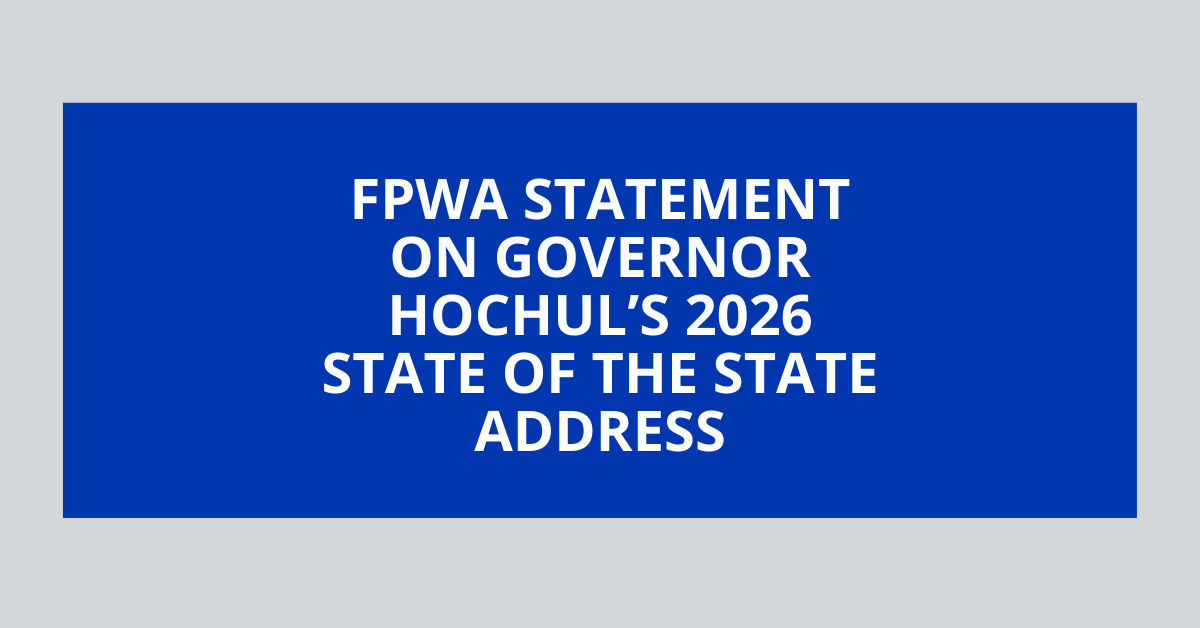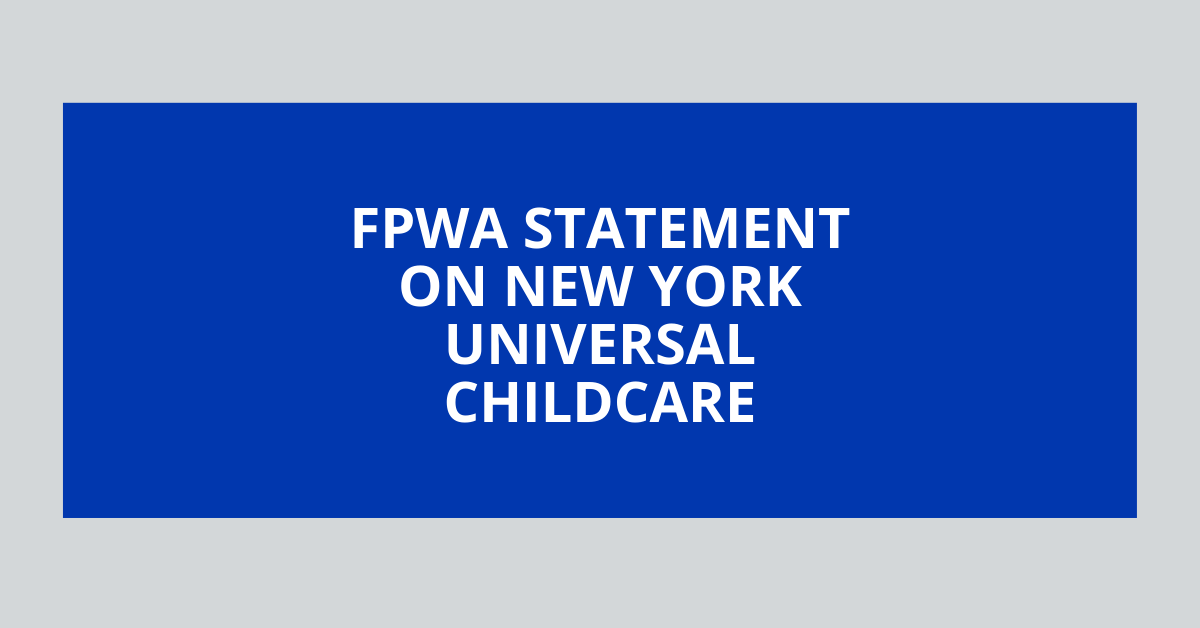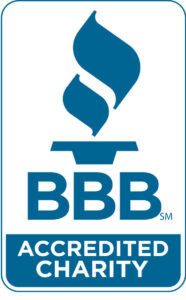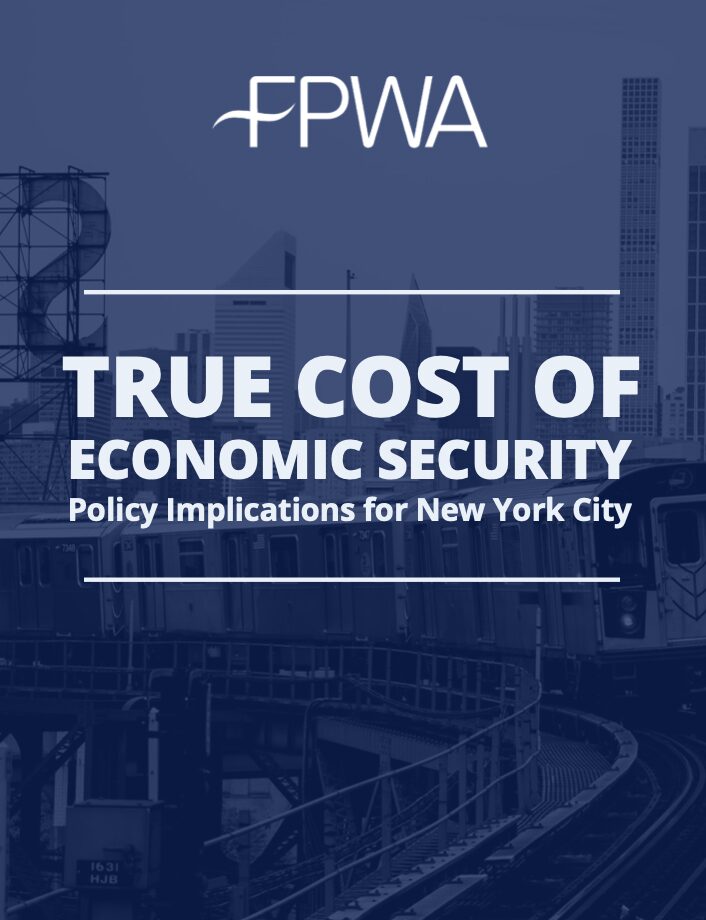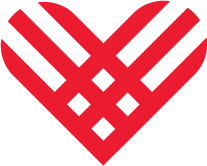FOR IMMEDIATE RELEASE
Media Contact:
Andrew Taranto
ataranto@actumllc.com
NYC’s Budget Leaves Critical Funding Gaps, Putting the Economic Security of Hundreds of Thousands at Risk
Detailed budget analysis cites City’s new funding for vulnerable families — but warns gains may collapse under federal cutbacks.
New York, NY (July 29, 2025) — An analysis of the recently passed New York City budget by the Federation of Protestant Welfare Agencies (FPWA) reveals a stark future for the economic security of New Yorkers. While the FY 2026 budget boosts critical funding for childcare, legal assistance for immigrants, and mental health supports, these hard-fought gains are gravely threatened by unprecedented federal cuts under the “One Big Beautiful Bill Act.”
The report warns that unless Albany acts to make sustained investments, hundreds of thousands of New Yorkers — including children, working families, and seniors — could soon find their ability to meet rising costs and save for the future further impeded.
Families with young children are especially at risk. Loss of time-limited federal and state grants are poised to leave the city with $5.5B less to support access to childcare, public assistance, and Medicaid. Without additional funding, federally aided programs like Head Start and Public Assistance could lose $690M and $1.6B, respectively, in annual resources even after the City has made efforts to baseline vital programs in the FY26 budget. Federal cuts to programs could also put the 1.8M New Yorkers that rely on SNAP and 4M New Yorkers that rely on Medicaid at risk.
“We are at a breaking point,” said FPWA CEO and Executive Director Jennifer Jones Austin. “If we don’t confront this crisis now, millions of New Yorkers who are already struggling to save for the future and weather financial storms may find themselves in greater hardship. The time to act is now.”
The report underscores that while the city briefly benefitted from higher-than-projected tax revenues, these one-time gains were offset by expenses outpacing inflation, limited new reserves, and reliance on expiring pandemic funds, leaving many budget restorations as short-term fixes vulnerable in a downturn.
In its in-depth review of the $115.9B FY 2026 City budget, FPWA highlights that City leaders made significant restorations and investments in essential services, despite facing projected budget gaps and economic volatility. The budget includes $423M to maintain childcare vouchers, $3B in capital and $1B in expense funding for affordable housing initiatives (“City for All”), and full restoration of seven-day library service — critical for education and community stability. Restorations to pre-K, housing legal services, and public safety also signal a real commitment to vulnerable New Yorkers.
At the same time, FPWA’s analysis found persistent gaps in City funding, particularly around wages, afterschool programs, cash assistance, support for immigrant and homeless services, and reserves to weather another crisis. Wage stagnation for over 50,000 human services workers remains a glaring issue, with the budget only partly addressing these critical frontline jobs.
According to the True Cost of Economic Security (TCES) measure — developed by
FPWA and the Community Service Society with the Urban Institute — over 60% of New Yorkers already do not have the resources needed to participate in today’s economy without cutting back. Without urgent action, they will be pushed deeper into economic insecurity.
“This budget shows the City has made some critical investments but with federal cuts this severe, unless all levels of government step up, New Yorkers will face impossible choices,” said Jones Austin.
About FPWA:
FPWA is a leading anti-poverty, social policy and advocacy organization dedicated to strengthening human services organizations and faith institutions and advancing economic opportunity and justice for New Yorkers with low incomes. Since 1922, FPWA has driven groundbreaking policy reforms to better serve those in need. We work to dismantle the structural and systemic barriers that impede economic security and well-being, and strengthen the capacity of human services agencies and faith organizations so New Yorkers with lower incomes can thrive and live with dignity.





